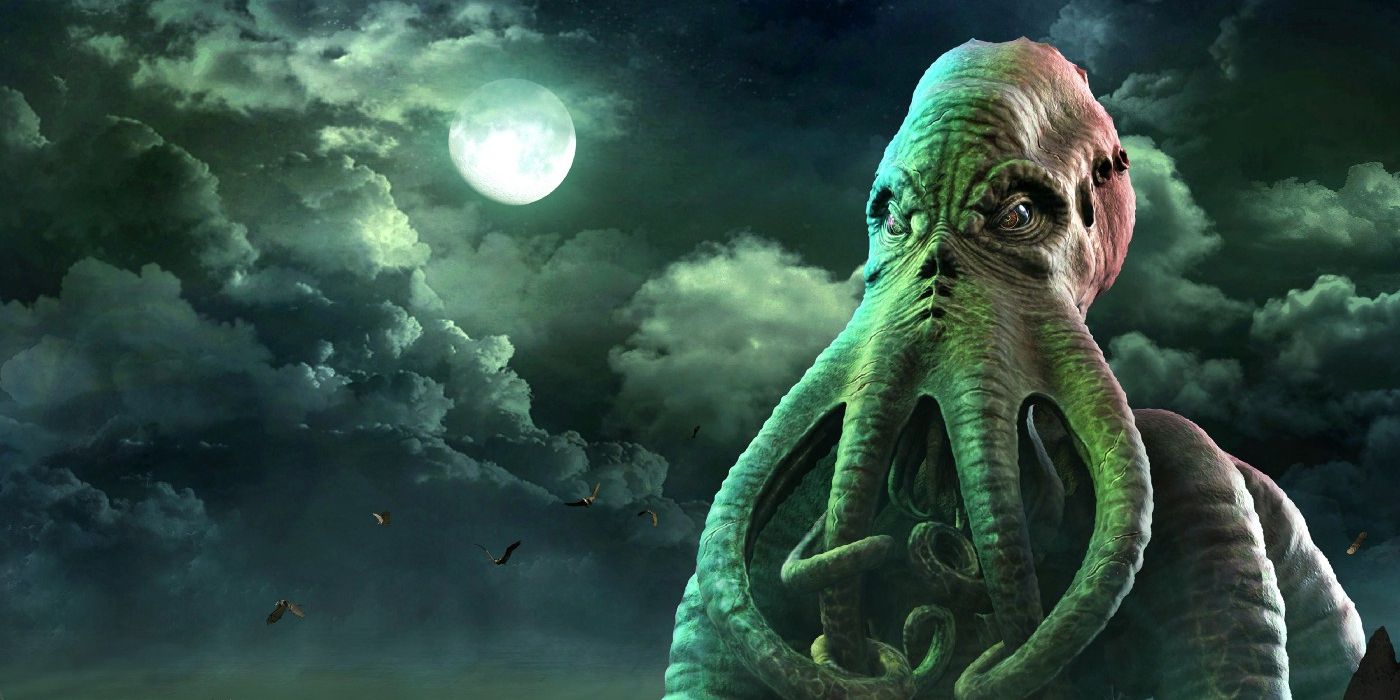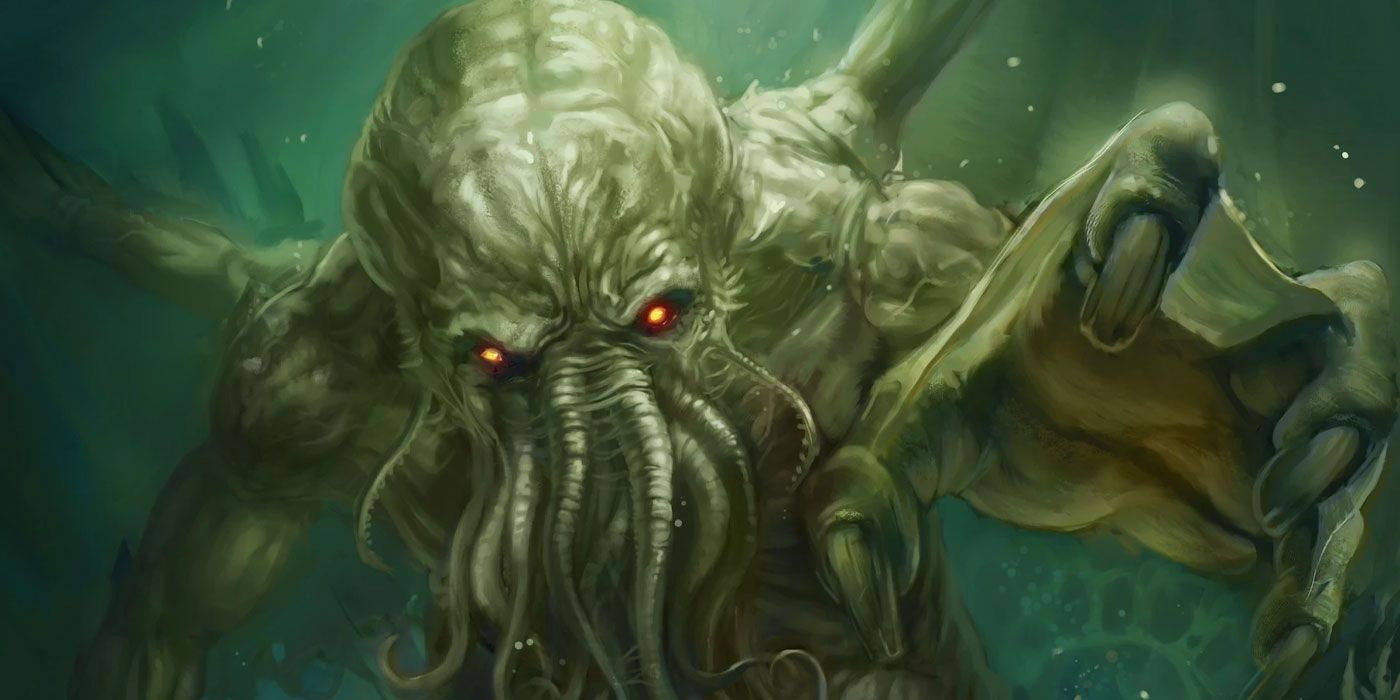The release of director Robbie Banfitch’s The Outwaters has the cosmic horror subgenre permeating the discourse of movie fandom once again. The subgenre has a rich history in the annals of scary moviedom throughout history. But it prompts the questions: What exactly is cosmic horror? What are the tenants and key elements that make a horror movie part of the cosmic horror subgenre?
The term “cosmic horror” is often used in tandem with Lovecraftian horror, or stories that take inspiration from the author H.P. Lovecraft. Much of the tropes of cosmic horror find their origin in Lovecraft’s work and his Cthulhu Mythos. Naturally, there are works of similarly inclined horror that predate Lovecraft, like Robert W. Chambers’ The King In Yellow. Chambers’ book is a series of interlocking short stories that revolve around the manuscript of a play that turns its readers insane.
What Are The Main Themes of Cosmic Horror?
While the mythology of Cthulhu or the play in The King in Yellow are necessary hallmarks in the evolution of the subgenre, they are primarily invocations of cosmic horror’s core themes: The terrifying insignificance and inability to comprehend the uncaring, cast, and indescribably powerful forces of the universe. It’s the fear of the unknown, and the relatively immaterial nature of humanity’s place in existence when compared to time, space, and even superior intelligences.
These themes often manifest themselves in the mental deterioration of cosmic horror stories' main characters. When confronted with power beyond the limited grasp of human intellectualism or physical understanding, the mind can do nothing but break. Cosmic horror is watching all notions of reality, truth, and even material existence unravel beyond recognition.
What Separates Cosmic Horror From Other Kinds of Horror?
Cosmic horror has wound its way into the fabric of all kinds and styles of horror movie storytelling. It can and continues to be interpreted in numerous ways, but the most important elements of its genre remain the same. Humanity occupies a tiny place in the universe -- a place so fragile and worthless when compared to the incredible forces that reside in the very DNA of space and time. It also lends to the possibility of monstrous god-like creatures that can transcend those very frameworks.
Horror has a way of digging into the deeply rooted fears that worm their way into every audience member’s mind. Some of those fears are emotional and comparatively small, speaking to specific experiences like grief or trauma. Others refer to grander, all-encompassing fears like the end of the world, or death in general.
Cosmic horror, though, is special. It underlines the looming existential threat that perhaps death, grief, tragedy, even fear itself, mean nothing to the infinite powers of the universe. That is a truly horrifying thought.


